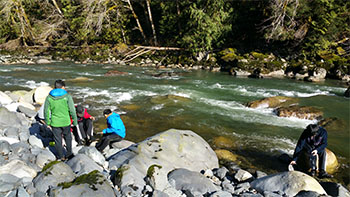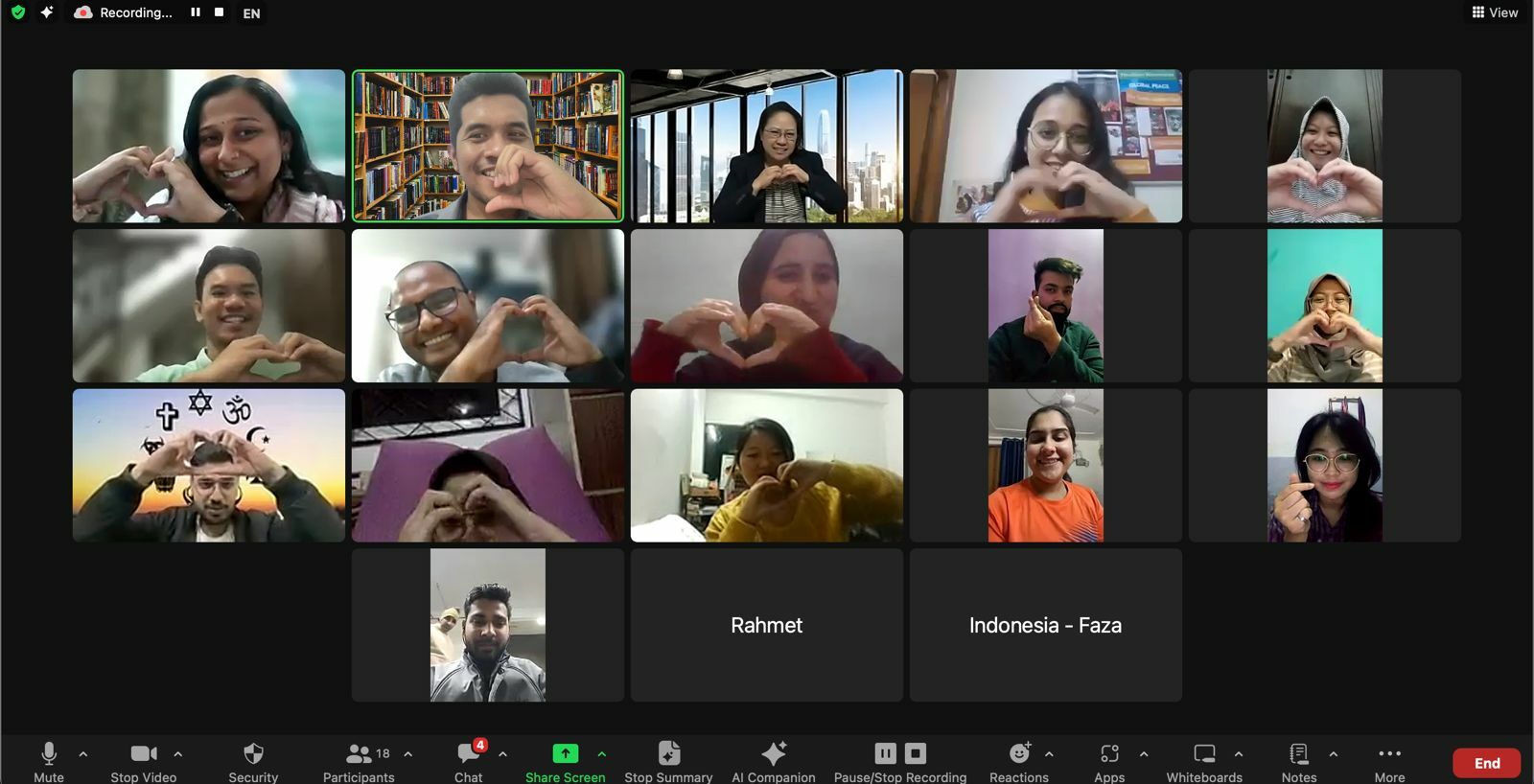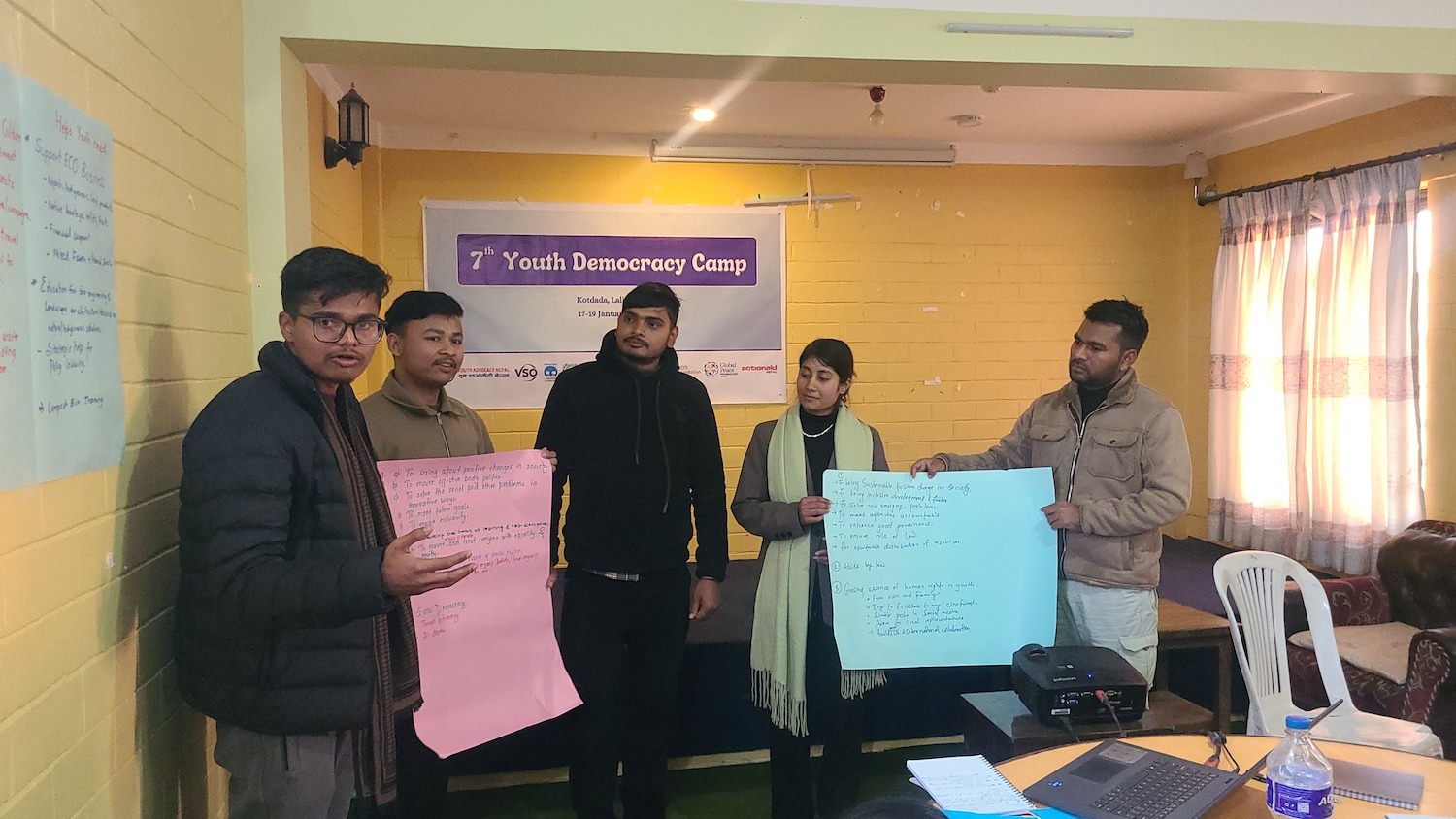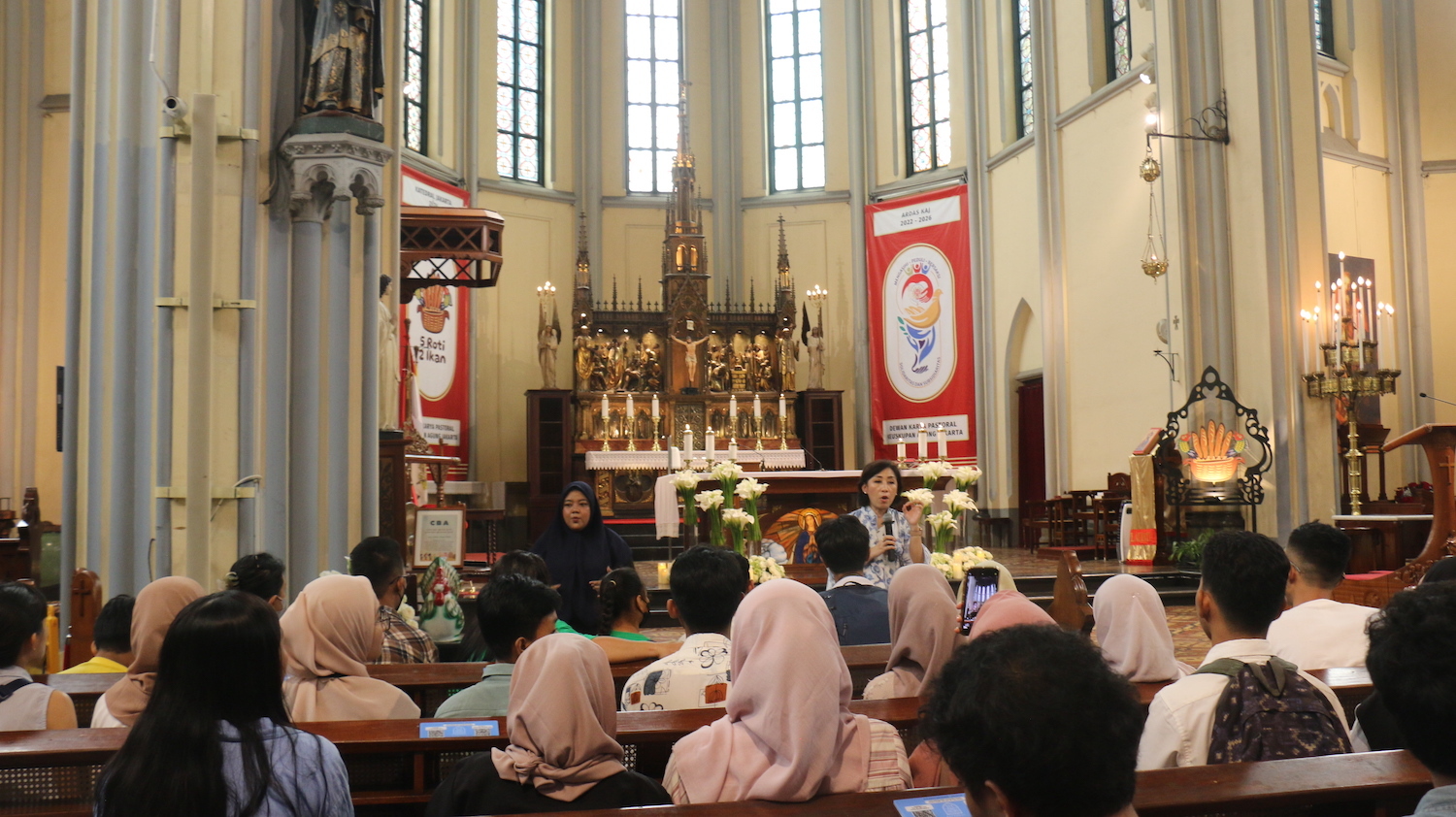“A true leader resonates with others; one that is looked up to as an example.” -High School GPY member
The sun’s rays never graced the face of Washington state’s North Cascades as I steadily ascended Mount Dickerman with my group of Global Peace Youth leaders and student representatives from local high schools. On a day like this, hikers depend on a generous amount of sunlight to dry clothes caked in their own sweat and shoes drenched by puddles left behind by an April shower. Snow blanketed the trails and became almost knee-deep as we climbed closer to the peak; an elevation gain of 3,950 feet. A physically tolling challenge, one of our more seasoned team leaders guiding the high school boys had an unusually difficult time, even requesting that someone help carry his load.
On the journey to conquering a daunting summit it can become easy to feel irritable. Once we reach the apex, the gratifying view alone is often compensation enough to forget the challenges already faced. However, it is important to remember that the excursion on the descent can be equally, if not more difficult than the upward climb. Usually, there is a greater burden on one’s knees on a downward slope compared to the initial upward progression. Feelings of anxiety and impatience get in the way of the body’s fatigue which leads to a tendency for people to quicken their pace. Keeping in mind that most hiking accidents take place on the way down, we had to maintain our composure in order to ensure a safe return. The steep slopes made it easy to slip on the icy trail.

Global Peace Youth hikers pack up camp the following morning.
Time was not on our side. Already facing a late start in the day, we had less hours of daylight during our trip to make it to the very top and back to the beginning of the trail before the dark set in. Ultimately, it took our team a little over five hours to complete the 8.2 mile trail.
Dusk was soon upon us and there were still so many things that needed to be done. Trudging along with our soaked, aching bodies, we had hoped that we would have the chance to relax. But, with the waning light, we had to work fast. We sprung to action, pitching tents, preparing dinner, collecting and purifying water, and gathering firewood. I was pleasantly surprised at the lack of complaints within the camp, realizing I was surrounded by young people who were willing and focused in executing the tasks in front of them. This experience helped to remind me of the different qualities that define each of us as a leader. The true quality of a leader is not seen when times are easy, but while facing difficult circumstances.
“The ultimate measure of a man is not where he stands in moments of comfort and convenience, but where he stands in times of challenge and controversy.” -Dr. Martin Luther King, Jr.
I was especially inspired by one sophomore from Meadowdale High School who not only completed the tasks asked of him, but continued to ask what else needed to be done after fulfilling each one. This was his first overnight hiking experience and yet he was one of the hardest working of the group. He understood the power of his actions and how his actions can be a source of motivation for others. Upon reflecting on his experiences, he said, “If I’m not willing to help out with things that need to be done then it influences others to not want to help out as well.” By being the first to work hard, he encouraged others to do the same.
Another sophomore from Mercer Island High School pointed out that “leadership is earned through exemplary action. A true leader resonates with others; one that is looked up to as an example”. He described his shifting view of leadership saying, “Usually leaders are depicted as rich, powerful people like a CEO or the president, but actually a leader can be anyone, like me, who leads others and inspires.” As young people who are less experienced or accomplished, we often have misconceptions about what it means to be a leader. We underestimate ourselves and discredit the kind of influence we have on others. It is because of fixed notions that we forget what it means to be a leader. This young man started to recognize his level of influence as an everyday leader by acknowledging his natural position as one of the oldest children in his family as a place where he can lead and inspire others.
I have always been under the impression that everyone is a leader. Whether we realize it or not, our actions or inaction affects others in often subtle and even profound ways. Leadership implies being in a position of influence. Author Marianne Williamson once said, “Our greatest fear is not that we are inadequate. Our greatest fear is that we are powerful beyond all measure.” What is important is the kind of influence we choose to have on others. That is a decision only we can make, starting within our own families and expanding our influence out to our society, nation, and world.
Kimihira Miyake is the Director for Global Peace Youth-US, the youth division of Global Peace Foundation in the United States.



